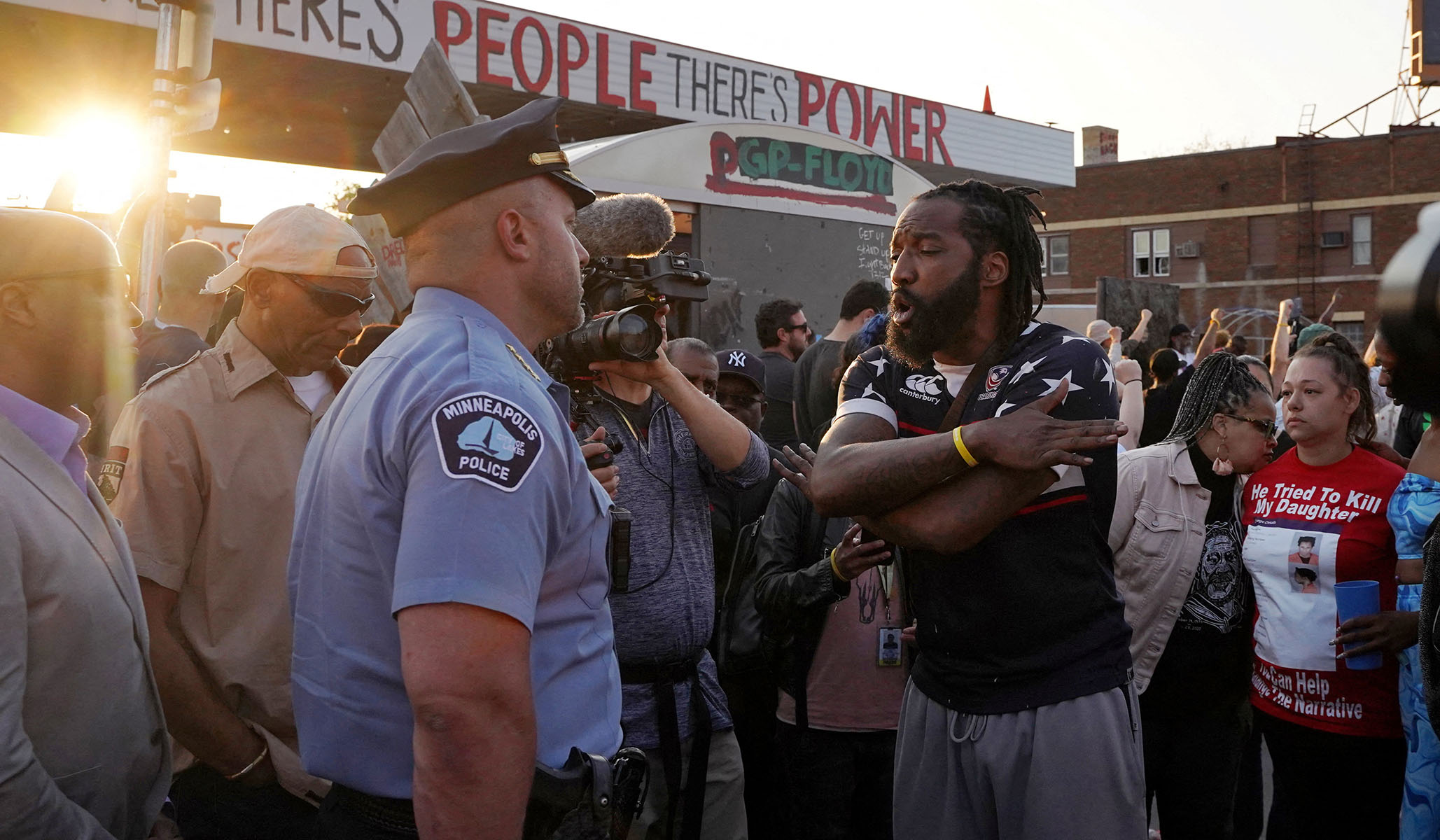


A Department of Justice investigation into the Minneapolis Police Department found “reasonable cause to believe” that the department has engaged in a “pattern or practice of conduct that deprives people of their rights under the Constitution and federal law,” the DOJ announced on Friday.
The probe, which was launched after the 2020 murder of George Floyd, found the department “uses excessive force, including unjustified deadly force and other types of force” and “unlawfully discriminates against Black and Native American people in its enforcement activities.”
The DOJ report alleges the department also “violates the rights of people engaged in protected speech,” and discriminates against people with behavioral health issues.
Federal investigators found that a “significant portion” of 19 police shootings that occurred between January 2016 and August 2022 were “unconstitutional uses of deadly force.” Officers at time fired shots “without first determining whether there was an immediate threat of harm to the officers or others,” the report states.
The report also detailed “persistent deficiencies in MPD’s accountability systems, training, supervision, and officer wellness programs.”
“The patterns and practices we observed made what happened to George Floyd possible,” Attorney General Merrick Garland said.
Minneapolis has agreed to negotiate a court-enforced consent decree that would require an overhaul of the city’s police department.
The DOJ recommended 28 remedial measures to “improve public safety and build community trust,” Garland said. Those measures include: improving policies around use of force, improving policies and training related to protests and demonstrations, and requiring officers to report police misconduct.
Garland noted some “important changes” had already been enacted, including prohibiting all types of neck restraints and banning the use of no-knock warrants.
Garland offered a message to Minneapolis police officers and called their work “essential.”
“The work you do on a daily basis is extremely difficult and often very dangerous,” he said. “For you to succeed your police department must provide you with clear policies and consistent training that explain and reinforce constitutional boundaries and responsibilities. It must give you the support you need to do your jobs safely and effectively.”
Hundreds of police officers have left the force in Minneapolis since the riots in the city in 2020 and “the morale of the remaining officers is low,” according to the report.
“Policing, by its nature, can take a toll on the psychological and emotional health of officers, and the challenges of the last few years have only exacerbated that toll for some MPD officers,” the report said.
The DOJ cited challenges in Minneapolis and St. Paul – known together as the Twin Cities – with “stark” racial inequality.
“By nearly all of these measures, the typical white family in the Twin Cities is doing better than the national average for white families, and the typical Black family in the Twin Cities is doing worse than the national average for Black families,” the report said. “The median Black family in the Twin Cities earns just 44% as much as the median white family, and the poverty rate among Black households is nearly five times higher than the rate among white households. Of the United States’ 100 largest metropolitan areas, only one has a larger gap between Black and white earnings.”
Garland cited data that showed Minneapolis officers stopped black and Native American people nearly six times more often than white people in situations that did not result in arrest or citation, when their share of the population was taken into account.
Minneapolis mayor Jacob Frey said Friday that he was grateful for the federal assessment, adding that policing changes are “foundational to the very health of our city.”
“I’m optimistic,” he said, “that over the next several years – and yes, this will take several years – that Minneapolis will be the city that the nation looks to for constitutional and trustworthy policing, and I’m looking forward to partnering with the DOJ in this process.”
Brian O’Hara, the new Minneapolis police chief, said that his colleagues in the department are “deeply committed to making it the best police department in the nation.”
“We will change the narrative around policing in this city,” O’Hara said. “Out of the darkness and trauma our residents and our police offices have experienced over the last three years, we will emerge as a beacon of light for the rest of the world.”
The investigation follows similar federal probes into police departments in Baltimore, Ferguson and Louisville in recent years.
